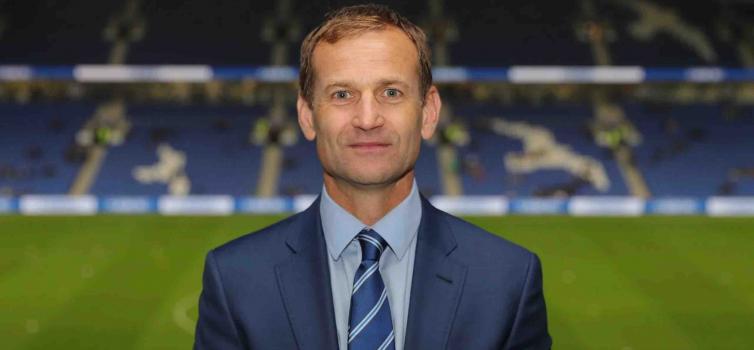Dan Ashworth: The first 90 days
Articles / /

Dan Ashworth: Was speaking on the Sporting Director panel at TGG Live in October
Written by Simon Austin — February 22, 2024
DAN ASHWORTH is the man Manchester United have chosen to lead their new football strategy in the INEOS era.
The 53-year-old Sporting Director is free to move to Old Trafford after a compensation package was agreed with Newcastle United. Speaking at our TGG Live Conference last October, Ashworth gave a fascinating insight into how he approaches the first days at a new organisation.
He cited a book that had particularly influenced his thinking in this area: The First 90 Days, by Michael D Watkins, a Professor of Leadership and Organisational Change at the IMD Business School.

See the full agenda for TGG Live 2024 - 25 elite speakers at an iconic venue across two days in September
For more details and how to buy tickets, click below
The book has sold more than a million copies worldwide and been described as “the Onboarding Bible” by The Economist. Appearing on a Sporting Director panel alongside Stuart Webber, then of Norwich City, and Brentford’s Phil Giles, Ashworth was asked how he approached the early stages at a new organisation.
“Everyone is a bit different, every club is different,” Ashworth told moderator Matt Roberts. “Jeremy Peace (the former chairman and owner of West Brom) is very different to (Brighton owner) Tony Bloom, who is very different to the new ownership structure at Newcastle.
“Brighton was in a totally different situation than Newcastle - not better, not worse, just different.
"The people you have got - at the top of the organisation, running the club, and within the organisation - that’s the key thing.
“Seek first to understand. What is right for one particular business is not necessarily right for another business. I read a book, The First 90 Days; I’ve actually read it three times, before each different job I’ve gone into.
“And it’s the same messages - don’t assume what worked there, will work there. And don’t assume what didn’t work there won’t work there. It was a book about transitioning across businesses and CEOs moving within the same type of business but to a different organisation.
“Unless you understand the culture and the people within the new environment you are going into, it’s a really really difficult job. That’s the key part of understanding the personalities, the strengths, how the club is structured, what are the expectations - are you expected to win, are you expected to stay up, are you expected to make a trading profit?
“Understand all those things first and then the culture, the emotional relationships you have with the staff will become a lot easier. First and foremost, go in with an open mind, and don’t assume everything is brilliant or everything is rubbish. We all have a preconception of moving to a new organisation and what it looks like from the outside.
“Try and build some relationships early without making any generalisations and then empower the staff to come back.”
Ashworth then referenced a process he had gone through at the Football Association along with Dave Reddin MBE, who was the Head of Strategy and Performance at the time. Reddin delivered the opening presentation at TGG Live ’23, entitled ‘What it takes to win.’
After following Reddin onto stage, Ashworth said: “Dave touched on it before and Dave did this brilliantly at England, I have to say - get people to tell you what they think they’re good at.
“We went through a process with each department - ‘Go on then, give us a SWOT. What are your strengths and - rather than weaknesses - what are the gaps, what are the opportunities, what are the threats?’
“And get them to come up with where they think they are at. People are really honest. They will come back with, ‘Perhaps we haven’t done this so well, but we are really proud of this’ and it perhaps gives you a really good picture of where the club is at.”
SWOT stands for Strengths, Weaknesses, Opportunities and Threats, and SWOT analysis is a technique for assessing these four aspects.



-1.png)





